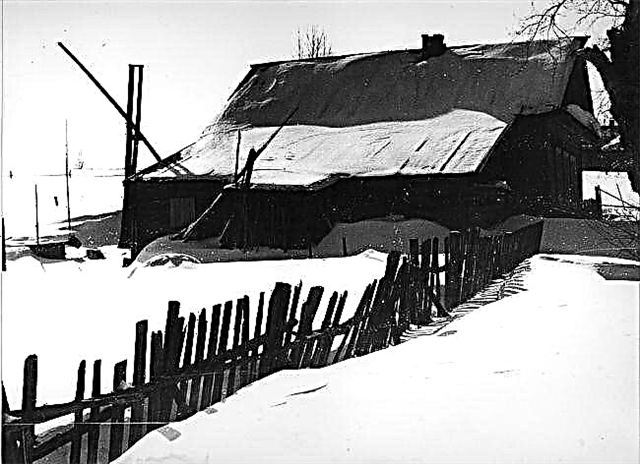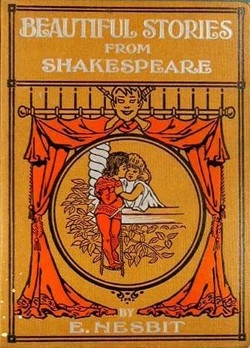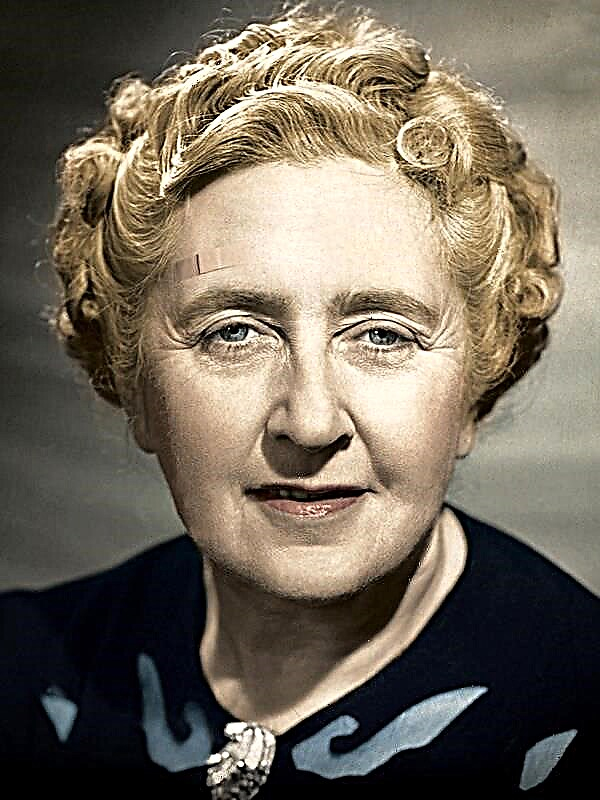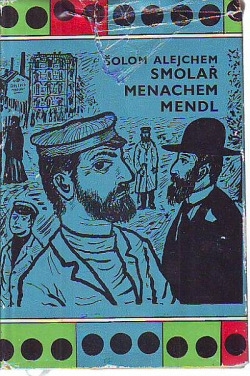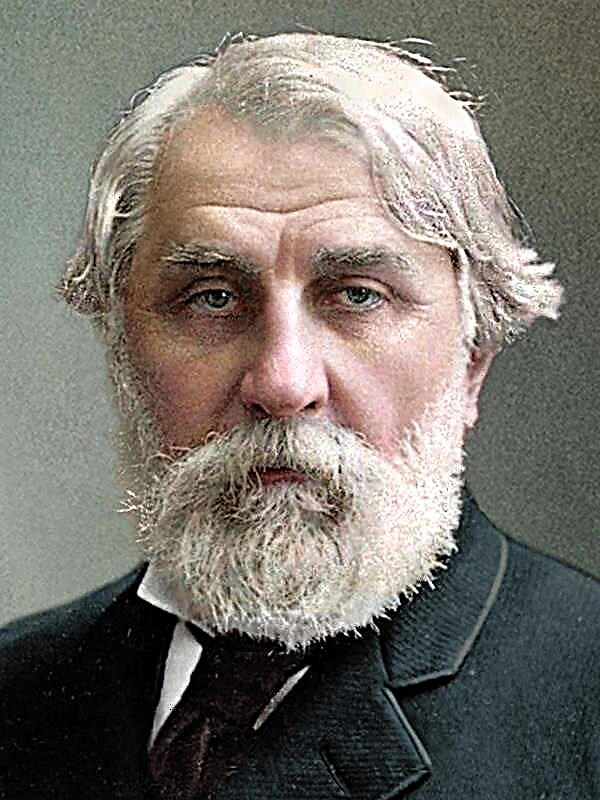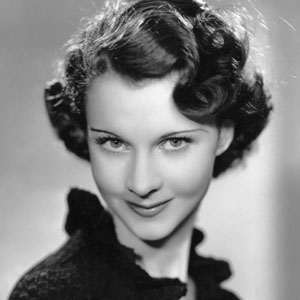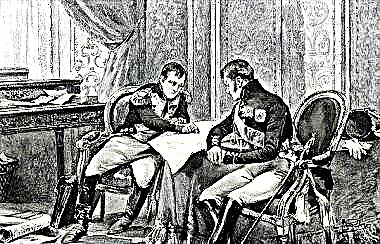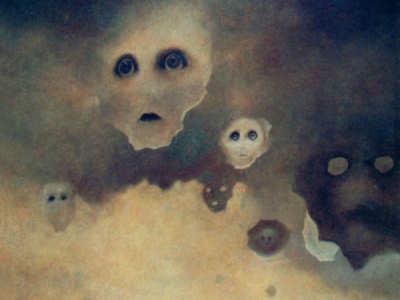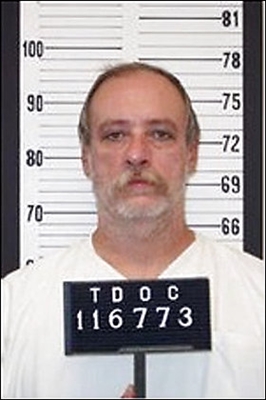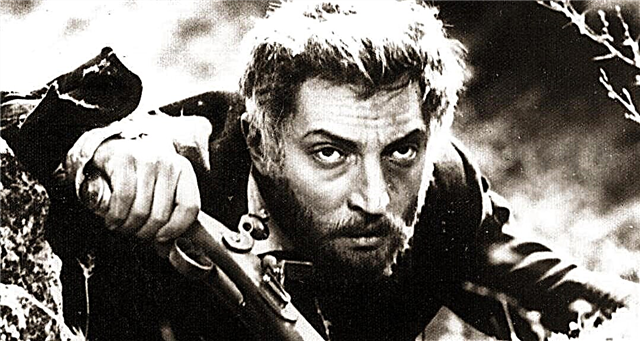Comedy precedes the author’s letter to Mr. Yelchaninov, a playwright and writer, in which he reflects on the name of his comedy. He did not want to translate the French “Bijouterie” as “Haberdashery”, as this would mean “someone else's word to write in our letters”, and therefore the name “Brush” appeared.
Then follows the author’s appeal to the reader, in which he expresses his attitude to the clogging of the Russian language with foreign words.
The major in civil affairs of Chistoserdov undertakes to show his Nephew all the entertainments and temptations of the big city so that the young man, who by the will of his father is away from home, can avoid networks in which it is easy to get confused without knowing life. Chistoserdov talks about court and free masquerades, morals and dealing with different people. The place where they are both located is not random. There are so many people around the Shchetetilnik that, watching them, you can learn more in two hours, "rather than surviving with the city in two years." In Penza, exactly where the Nephew lived to this day, you cannot see those people who happen to be in the Shchetpilnik store. The nephew asks Chistoserdov about where the Brush is located, and finds out that the seller receives the highest price for renting the counter from the buyers, taking exorbitant prices for any trifle, and even taunts unlucky visitors. The nephew is interested in the audience that happens here. Chistoserdov reports that more often than others courtiers and high officials come to rest or laugh at those who are lower than them in position. Chistoserdov explains to the Nephew that vices are common to all classes, however, high-ranking persons are in plain sight and their shortcomings are more noticeable. It turns out that the Nephew, according to the stories of his father, knows that Chistoserdov does not let anyone go wrong, and therefore he has many enemies and ill-wishers. The appearance of the Shchetopilnik, who knows how to remove the mask from any hang, gives the major great pleasure.
The nephew is surprised that the merchant has enough education to deal with noble visitors. Chistoserdov explains that Shchetetilnik is not a merchant, but a retired officer (meaning not a military rank, but a post in the civil service), for directness and truthfulness, he was left without the usual remuneration when resigning. Shchepotilnik's father, also an officer, managed to give his son a good education. Shchepotilnik workers appear. Chistoserdov and the Nephew laugh, listening to the conversation of workers who say "a la tilogrey and a la napkin." The major at the same time explains to the Nephew that “a la Greek” and “a la salute” are the latest fashion news.
Left alone, workers talk about things that they take out of the basket (body): on the telescope, on the sculptural images of cupids, which they initially mistook for angels. The Shchetetilnik appears, sends the workers away and, left alone, argues that his trading profit is beneficial to the poor, and it is not a sin to take superfluous loafers. In addition, the Shchetilnik argues, these people have turned everything into a trifle - honor, sincerity, conscience and faith. Pure-hearted appears with the Nephew and introduces the latter to the Scepter.
Having discovered that the Nephew needs a watch, the brothelman shows him the clock, saying that if the brainless petimeter (beggar) asks for the clock, then the alarm clock in the clock starts ringing after midnight. This is the time when the dandies run on a date with their mistresses and helicopters. A man worthy of a watch rings when he should go to the service and work diligently. The nephew likes the instructions of the Shcheptilnik, and he admits to his uncle that he would like to continue to be in this place. The scavenger is pleased to hear praise addressed to him and invites the major and the youth to put on masks and listen to his conversations with customers.
Two ladies in fancy dress and one gentleman appear. They want to buy lottery tickets, but the Squealer refuses them under the pretext that he does not sell labels (tickets) when there are few people in the masquerade. The gentleman and the ladies are outraged. They believe that their presence is quite enough, since all three are important persons. One of the ladies, Maremyana, wants to see a mirror. The scrambler extols its product in terms that are unpleasant to its customers. The mirror is so expensive, he says, because it shows the true face of the coquette and the pretender; the white and blush in this mirror do not hide shamelessness; imaginary scientists will find themselves ignorant, and witty rude. A cavalier named Polydor buys this mirror for his companion. The second lady - Nymphodora - asks for a smaller snuffbox. The scribbler eagerly shows her this, claiming that the lady will contain all her good qualities in her: good manners, sincerity or reason, and others - conscience or wealth. Polydor expresses a desire to acquire a notebook, but upon hearing that most buy such items to record their atrocities and empty entertainments, he leaves with the ladies.
Privorov appears, wishing to buy dominoes, but is refused. The scribbler explains that nowadays masks are not needed in a masquerade, since many visitors to such entertainments already wear a mask. The earphone pretends to be a friend, the hypocrite constantly swears, and the thief is hiding under the rich clothes of a high rank. Prevorov was tired of listening to the sayings of the Shchetpenilnik, and he transferred the conversation to another subject - he needed a telescope. Brushstone continues to admonish Prevorov. If you consider other people's vices and shortcomings from the side of the tube, which increases everything, then they will seem atrocities. Its disadvantages can be viewed through a reducing glass, and few advantages - through a magnifying glass. In short, the Shchetetilnik continues, one can belittle other people's virtues and increase one's own. Irritated, Pretvorov buys a pipe that he doesn’t need, so as not to hear any more Speech of the Scrambler.
Vzryolyubov appears, wishing to acquire some wonders. The scrubber shows him some of them: a strand of biblical Samson’s hair wrapped in a flap from the beautiful Joseph’s cloak (“the patch of epancha of the sculpted Joseph”). The scribbler assures Vzdorolyubov that at home he has a vial with the tears of the great Alexander, the snuffbox Diogenes, and even a network forged by the ancient Vulcan. Having bought stones from the "Nowhere Nebyvalova Island", Vzdorolyubov leaves. Instead, Frivolous comes first to the counter, and then Judge Obiralov. The first bought a ring for engagement, and the second “weight” (scales) for weighing the gold pieces.
Pouring his speech with French words, Verkhoglyad appears. He advises the Scheptilnik to be called a haberdasher, then he will become a real "galant-ohm" (socialite). The scribbler explains that he is only interested in a name that is correct in Russian. Verkhoglyadov says that “our language is the most brutal,” and if it had not been decorated (decorated) with other people's words, then there would be a real orer (horror). As an example, he cites the title of the play Troa Frere-Rivo (Three Rival Brothers), which in Russian is called The Three Brothers of the Solubilus. The scribbler suggests Verkhoglyadov switch to French, if Russian is unpleasant to him. Verkhoglyadov asks him to show him a snuff-box with a double querkle (lid) and a miniature penture (a picturesque miniature), for which he undertakes to tell the whole Monde galan (secular society) about the Boutique of the Shchepotilnik. Reproaching Shchetetilnik with a bad reputation for mordantant (causticity), Verkhoglyadov leaves. Shchepetilnik, Chistoserdov and Nephew talk about people like Verkhoglyadov.
Starosvetov appears. Unexpectedly for the Nephew, who thought at first that the old man wanted to buy glasses or a cane, Starosvetov asked to show him snuffboxes with love stories. The scrubber advises him to first acquire glasses in which he will be able to distinguish a tree from gold, and bogey from a carpet. Starosvetov insists on a snuffbox, but, taking it in his hands, can not make out what is painted on it. The scribbler explains that in the picture, a sixty-year-old man is fooling around to seduce young beauties. Angry Starosvetov, threatening the Shchetilnik, leaves, almost knocking down the next visitor - Samokhvalov. This is the last buyer of the Shchepotilnik this evening, who was easily able to persuade him to buy special glasses, which are not intended for reading but for listening. They put on their ears and with the help of a special spring they plug them, so that you can not listen to other people's works.
The evening is over, and Shchepotilnik orders the employee to lock the shop. Chistoserdov is glad that his Nephew was enlightened enough. The Shchetetilnik himself regrets that only one of all the people ridiculed was corrected, and two hundred became his enemies.

